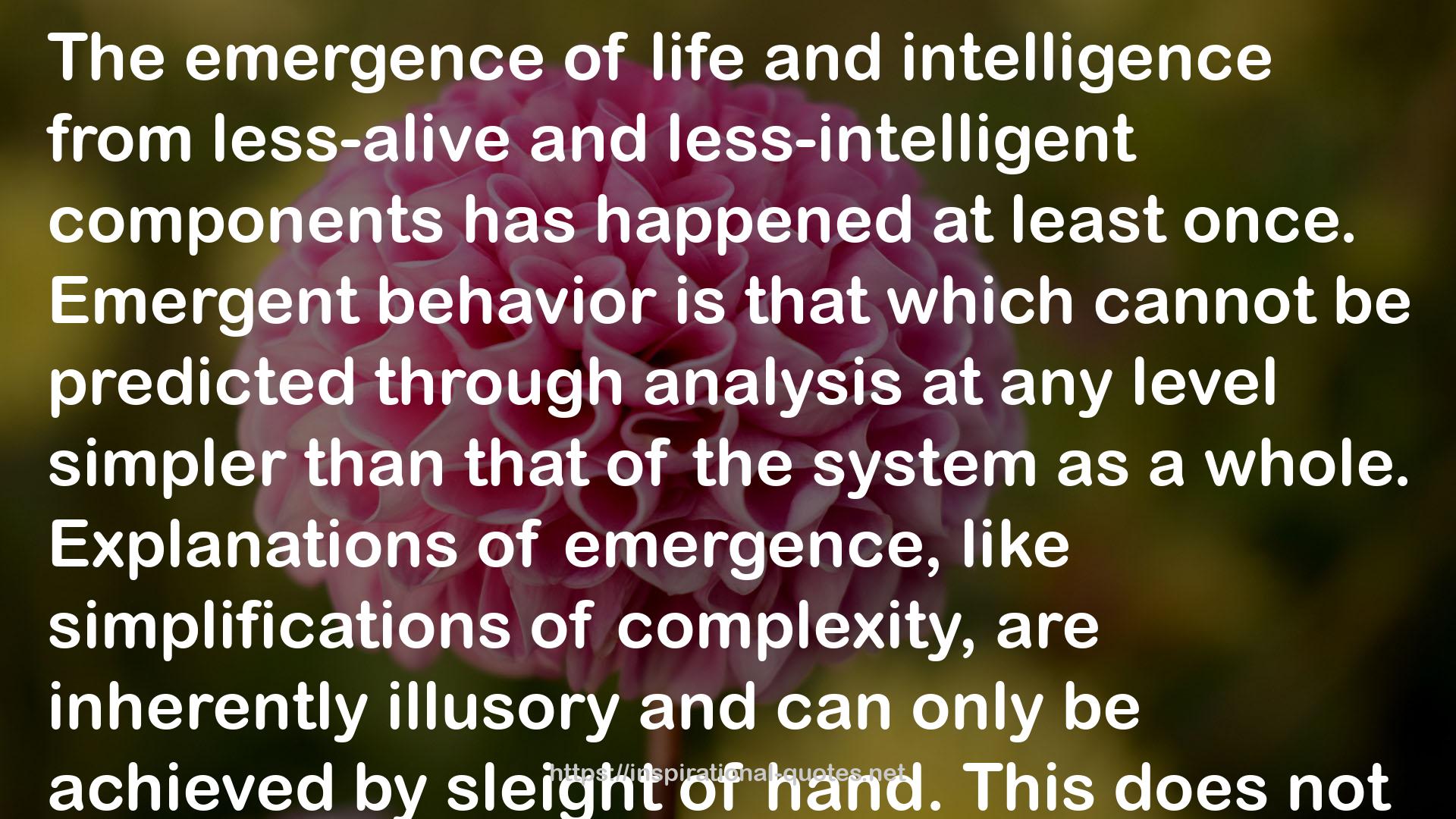" The emergence of life and intelligence from less-alive and less-intelligent components has happened at least once. Emergent behavior is that which cannot be predicted through analysis at any level simpler than that of the system as a whole. Explanations of emergence, like simplifications of complexity, are inherently illusory and can only be achieved by sleight of hand. This does not mean that emergence is not real. Emergent behavior, by definition, is what’s left after everything else has been explained. “Emergence offers a way to believe in physical causality while simultaneously maintaining the impossibility of a reductionist explanation of thought,” wrote W. Daniel Hillis, a computer architect who believes that architecture and programming can only go so far, after which intelligence has to be allowed to evolve on its own. “For those who fear mechanistic explanations of the human mind, our ignorance of how local interactions produce emergent behavior offers a reassuring fog in which to hide the soul.”33 Although individual computers and individual computer programs are developing the elements of artificial intelligence, it is in the larger networks (or the network at large) that we are developing a more likely medium for the emergence of the Leviathan of artificial mind. "
― George Dyson , Darwin Among The Machines: The Evolution Of Global Intelligence
